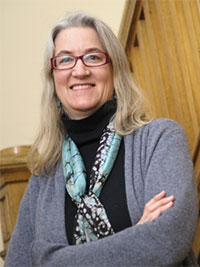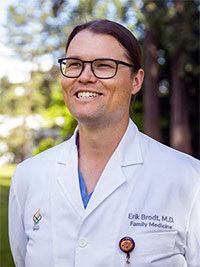The UW Department of Family Medicine and Community Heath (DFMCH) is proud to count alumni and former faculty among the newly elected National Academy of Medicine (NAM) members in 2021.
NAM recently announced the election of 90 regular members and 10 international members during its annual meeting. Election to the Academy is considered one of the highest honors in the fields of health and medicine and recognizes individuals who have demonstrated outstanding professional achievement and commitment to service.
New Inductees

Alexandra K. Adams, MD, PhD
Alexandra K. Adams, MD, PhD, director, Center for American Indian and Rural Health Equity, and professor of sociology and anthropology, Montana State University (MSU). For her work partnering with Indigenous communities in the Midwest and Montana and pioneering community-engaged research methods.
Prior to her work at MSU, Dr. Adams completed her family medicine residency at UW DFMCH where she later worked as a professor. She also served the UW School of Medicine and Public Health as a director of the Collaborative Center for Health Equity from 2008 to 2015 and director of the Cancer Center’s Cancer Health Disparities Initiative from 2009 to 2016.
“I am honored to have been elected to the NAM and will use my voice within the academy to highlight and work on health equity issues in Indigenous communities,” said Adams. “My time at the UW DFMCH was critical to shaping my work with Native American communities in Wisconsin and nationally. We built an amazing research team, established many good partnerships with tribal communities, and trained many students and several post-docs during the work of the Healthy Children, Strong Families research. I also had many wonderful research and clinical mentors that were critical to my success.”

Erik Brodt, MD
Erik Brodt, MD, associate professor of family medicine, Oregon Health & Science University. For leadership in American Indian/Alaska Native workforce development and pioneering innovative methods to identify, inspire, and support American Indian/Alaska Native youth to excel.
Dr. Brodt previously worked as an assistant professor in the DFMCH where he received the 2015 Board of Regents Diversity Award for his dedicated service to Native American communities in Wisconsin as an advocate, scholar and leader. He established the Native American Center for Health Professions at the UW School of Medicine and Public Health (SMPH) in 2012 where he served as its first director.
“As a member of the National Academy of Medicine I will look to bring new light and attention on American Indian and Alaska Native health education and educational research initiatives. Tribal voice belongs in this space, and I hope to ensure the Academy is a place where Indigenous principles and values rise to help us all lean into our values better,” shared Brodt. “My time with the UW-DFMCH was foundational and transformative. I met some of the most visionary and essential leaders in my career development—Dr. Alex Adams, Dr. Cindy Haq, and UW-Regent Ed Manydeeds, JD—who all challenged me to dream bigger and build bolder initiatives that truly serve others. They challenged me to bring my whole self to the work and to have the courage to walk the very edge of innovation. UW-DFMCH was a willing advocate, and it made all the difference in launching me into academic medicine.”
Previous Inductees with DFMCH Ties
Michael Fleming, MD, MPH
Dr. Fleming is an emeritus professor with the DFMCH and the Northwestern University Feinberg School of Medicine. He was instrumental in attracting major research funding to the DFMCH in the mid-1980s and went on to pursue research and training programs focused on testing behavioral interventions in community-based primary care practices. He has also published dozens of studies on phospholipids, alcohol biomarkers, chronic pain, fetal alcohol spectrum disorder, pharmacotherapy trials, epidemiological studies and educational interventions.
Susan Skochelak, MD, MPH
Dr. Skochelak came to the University of Wisconsin in 1986, where she practiced as a family physician at the Northeast Family Medical Center and later moved to Verona Family Medical Center. She developed the DFMCH’s first required medical student education programs, the Primary Care Clerkship and the Generalist Partners Program.
In addition, she was the director of the Wisconsin Area Health Education Center, chair of the Consortium of Primary Care for Wisconsin, and a member of the governor’s Rural Health Development Council.
Dr. Skochelak served as senior associate dean for academic affairs at the SMPH from 1997 through 2009, after which time she became the vice president for medical education at the American Medical Association. In that role, she has created “Accelerating Change in Medical Education,” a $20 million grant program that supports a consortium of 32 medical schools that are making transformative changes in medical student education to create the medical schools of the future.
Published: December 2021
